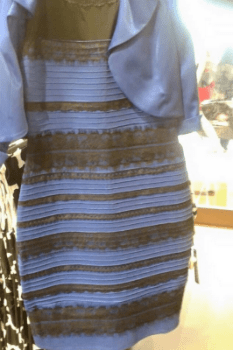5 Links We Would GChat You If We Were Friends
5 Links We Would GChat You If We Were Friends
Note: Want to see the list of newsletters we like that Manoush mentions in this week’s podcast? Find it in the Note to Self newsletter here.
Spending just one day offline can make you feel like you missed 100 important stories. As you’re trying to stay abreast of the 100 even newer, as-important stories/memes/investigations/cute animal videos… well, it starts to feel like this:
Or, you know, this:
Luckily, there’s someone who devotes hours every day to helping us with that quandary. Caitlin Dewey is the Digital Culture Critic at the Washington Post. In addition to her regular column she also sends out a daily newsletter called “Links I would GChat you if we were friends.” It’s exactly what it sounds like: a couple dozen hand-picked links of the day’s top online stories, curated by someone whose job it is to have her finger on the pulse of the Internet world at all times.
In this week’s episode, Manoush sits down with Caitlin to talk about the top five digital culture stories from the past year, so that you can end 2015 feeling up to date without having to sift through thousands of old links.
5. The Zola Story
A 150-tweet story by Aziah “Zola” Wells trended for two straight days on Twitter (longer than the Paris attacks). If you missed it (or gave up on it), you weren’t alone. It was long and twisted – an account of a wild weekend in Florida involving sex work, suicide attempts, and murder. Then, in the following months, both Caitlin and a reporter at Rolling Stone produced reported pieces looking into which aspects of the story were true, why people responded the way they did, and why it all matters. You can check out the original tweets – which have since been deleted – here.
4. The Dress
Back in February, it seemed for a moment like a civil war might break out between pretty much everyone on the Internet. In question “The Dress” as blue and black and those who saw it as white and gold. BuzzFeed writer Cate Holderness discovered the meme on Tumblr, and her initial post was so wildly popular that BuzzFeed put two editorial teams on The Dress beat, producing dozens of stories on the topic and garnering tens of millions of page views. (For the record, it was actually blue and black. Supposedly.)
 Just in case you’d found a really comfortable rock to hide under.
(BuzzFeed)
Just in case you’d found a really comfortable rock to hide under.
(BuzzFeed)
3. This Novel-length Article About Code
We know, we know. You heard about Paul Ford’s 38,000-word magnum opus on code from this June and you totally had every intention of reading it… except that finding time for a book-length essay on a tricky topic isn’t always easy. It’s OK – this one is an evergreen. Consider this another opportunity to dig deep into a serious demystification of coding and the tech world that we all interact with every day, but don’t always know all that much about. On a plane home for the holidays six months later.
2. The Reddit Revolt
Known as the “front page of the internet,” Reddit has long been an incredible source of information and evolving news stories – but it’s also unfortunately been a place where harassment campaigns take root. That started to change this summer, when Reddit started cracking down on hate speech and harassment. Things really came to a head when the site fired Victoria Taylor, who ran the AMA (“Ask Me Anything”) section. Following her termination, Reddit’s moderators – unpaid individuals who help run the site’s various communities – organized a strike against the site for an entire week. The controversy and its fallout has fueled an ongoing debate about free speech, as well as the question of who benefits when users on sites like Reddit and Facebook effectively donate their labor.
1. The Ashley Madison Hack
Online leaks are nothing new. But the Ashley Madison hack was the first high-profile privacy breach that threatened to destroy the relationships, personal lives, and careers of the 37 million people with accounts – most of whom never actually engaged in an extramarital affair, given that there were barely any women using the site at all. Caitlin describes this #1 tech story of the year as a watershed moment for digital privacy – listen to the podcast to hear why.
Subscribe to Note to Self on iTunes, Stitcher, TuneIn, I Heart Radio, or anywhere else using our RSS feed.